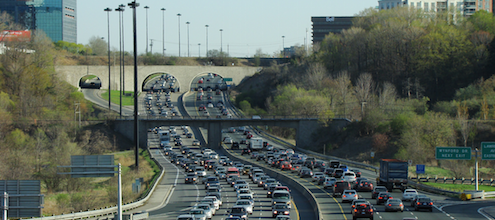
Wasted efficiency: Saskatoon is moving in the wrong direction on waste management
Saskatoon is backpedalling on smart waste policy. Bold initiatives were approved in 2018 to reduce landfilled waste and save money, but Council seems to be hitting the brakes. Ignoring Saskatoon’s waste management problem isn’t going to make it go away, however. In fact, further delay will just cost the city—and its residents—more.
Problem on the Prairies
First, some context. In November, council approved a transition to a user-pay system for residential garbage collection. Residents would have chosen between small, medium, or large garbage bins, with larger bins costing more. Less than a month later, however, council cancelled the initiative. City Council also approved a city-wide collection system for organic waste, but this program is also in jeopardy. It will vote on January 28 whether to roll back this initiative as well.
Amidst all the indecision, no one is questioning whether Saskatoon needs to improve its solid waste system. The city has one of the highest disposal rates in the country: more waste ends up in Saskatoon’s landfill, per household, than in most other Canadian cities. Saskatoon has committed to diverting 70% of its waste by 2023, yet the city’s diversion rate has been stuck around 20% for over a decade.
The city’s waste collection service is also chronically underfunded. Each year, the city’s waste department dips into its financial reserves to cover persistent shortfalls in revenue. The city will also have to reckon with the high costs of building a new landfill when the existing one reaches capacity, which could cost over $120 million.
Throw more, pay more
A user-pay system would have created incentives for households to generate less garbage. Under this system, households that generate more garbage, pay more. Those that generate less, pay less. And less garbage overall, would mean delaying, or even avoiding, building an expensive new landfill.
This kind of approach has worked extremely well in other municipalities, increasing waste diversion and reducing costs. The City of Beaconsfield, QC, for example, introduced a user-pay system in 2016. The new fees have cut landfilled waste by over 50%, and nearly four-fifths of residents now pay less for the service. A user fee program in Natick, MA, achieved similar results.
As usual, though, the details matter. Some councillors raised valid concerns about whether the proposal would give residents enough flexibility to lower their garbage bill. After all, under the Saskatoon proposal, residents would pay a flat monthly fee, regardless of whether their bin was full each week. Other cities—including Beaconsfield—have addressed this issue by charging residents based on bin size and by how often they put it at the curb. Saskatoon could easily tweak their plan to give households this type of flexibility.
An organic solution
Going ahead with the city-wide organics collection program also offers significant benefits. Organics make up 58% of Saskatoon’s waste by weight and are a leading source of greenhouse gas emissions from landfills. Combined with user fees, the planned organics program could defer building a new landfill by over two decades, saving the city (and taxpayers) about $5 million each year. These are the city’s own estimates.
Dozens of city-wide organics programs in Canada show that organics collection is worth doing. A new organics collection program in Calgary, for example, cut landfilled waste by over 43% within the first six months of operation. The proposed program in Saskatoon could achieve similar results, getting the city much closer to its ambitious diversion target.
Be bold: Stick to the plan
The solutions to Saskatoon’s waste management challenges are at its fingertips. Reinstating user fees for garbage collection, and saving the city-wide organics program, will create a more efficient and sustainable waste system. While such bold solutions are never easy, Saskatoon has no time to waste.
Online course: Municipal market-based tools for sustainable development Sign up now for this new and unique Ecofiscal course, designed for municipal employees.




Comments are closed.